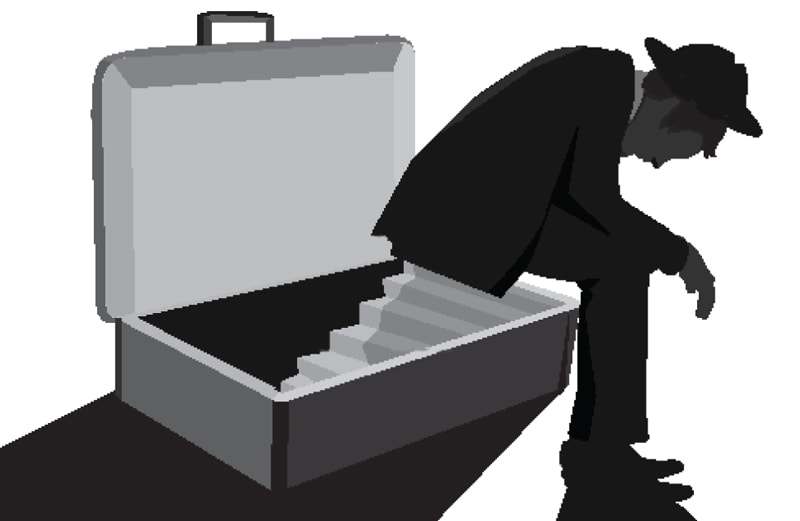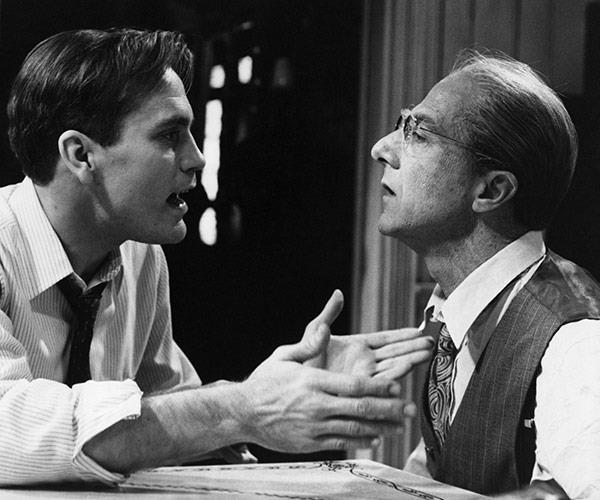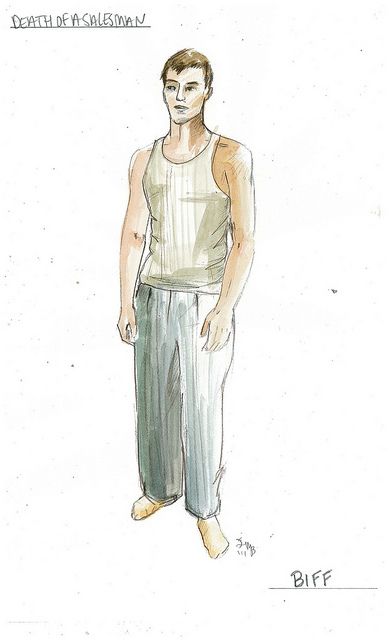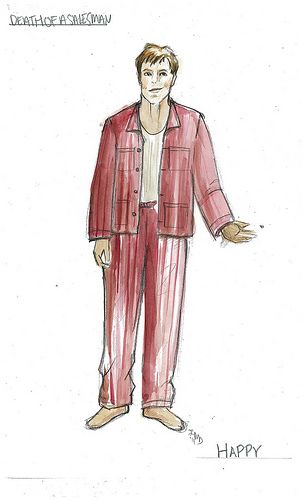This scene provides the reader with the final fallout between Willy and his son Biff. This scene exposes the essential gridlock of their relationship. It is evident that both men struggle with their own emotions, and it seems that their differences cannot be reconciled. Biff has realized that he has been carrying the burden of his father’s dreams and endeavours for too long. He cannot go along with this charade[1] anymore. He cannot cope with this broken record about the American dream and keeps going on and on. Willy’s son has realized that the whole family is living in an illusion and he wants them to know the truth: “no you’re going to hear the truth – what you are and what I am.” The fact that he is referring to his dad as “the man” speaks volumes about the tensions and animosity between Willy and his son.
[1] Charade : a situation in which people pretend that something is true when it clearly is not
[1] Charade : a situation in which people pretend that something is true when it clearly is not
|
"We never tell the truth for 10 minutes in this house”. Biff is fully aware that his family is full of lies and deception, and he is taking a stand against all the lies - leading to tragic consequences. He knows that denying the truth is much more dangerous than accepting it. In doing so, he is alienating himself from the rest of his family. He chooses to come to terms with the reality of what he and his family are. However, Linda and Happy are committed to maintaining Willy’s fantasies at all costs. Indeed, condemning Willy’s delusion would be like threatening his existence, and they would not run that risk.
|
Willy will not accept being called “a dime a dozen” because he has been spending his whole life believing that he was someone special and successful. He cannot let go of the myth upon which his all life has been built. And because Willy – deep down inside himself – has realized that he will never achieve his ambitions, he has transferred all his hopes and aspirations onto his son.
It is important to bear in mind that this is not trying to blame anyone in this scene. He only wants to tell the truth and to be true to himself, even though Willy thinks that the blame is being shifted on him: “I suppose it’s my fault!”. However, it is not the case as Biff says: “I’m not blaming it on you”.
“She moves to grab the hose, but this holds it down with hands” [stage directions].
At first, Willy pretends he does not know what the matter is, but Biff does know that his father has used it (the hose) to try to commit suicide. To confront him with the hose is to insult him and his sense of pride. This is what Biff is trying to do: “What is this supposed to do, make a hero out of you? This supposed to make me feel sorry for you?”. Because Biff is desperate to bring his family to the realization that “their” American dream is merely a myth, he shows them the hose which is the symbol of Willy’s impending suicide. With the hose, Biff forces his father to recognize the hose and his suicidal intention, and in doing so, he destroys his dad's belief - suicide will not redeem him. Indeed, Willy thought that suicide was a way for him to redeem himself. Like Ben before, Willy tells his dad that suicide is a cowardly escape – not the act of a hero.
At the end of the scene, Willy mutters that Biff must like him: “[…] isn’t that remarkable? – Biff – he likes me”. Both Linda and happy tell him that he has always loved him: “He loves you, Willy!” (Linda) / “Always did, Po” (Happy).
Conclusion
As the long argument unfolds, Biff is trying to bring everyone to their senses and make them admit the truth – they are just ordinary people. In this scene, Biff and Willie engage in a battle of truth versus delusion. The final line of the scene: “That boy – that boy is going to be magnificent” shows us that Biff’s efforts were in vain. Furthermore, his reaction to Biff’s frustrated tears “[…] and he breaks down, sobbing […]” demonstrates that Willy has once again missed an opportunity to seek refuge in the love of his family.





